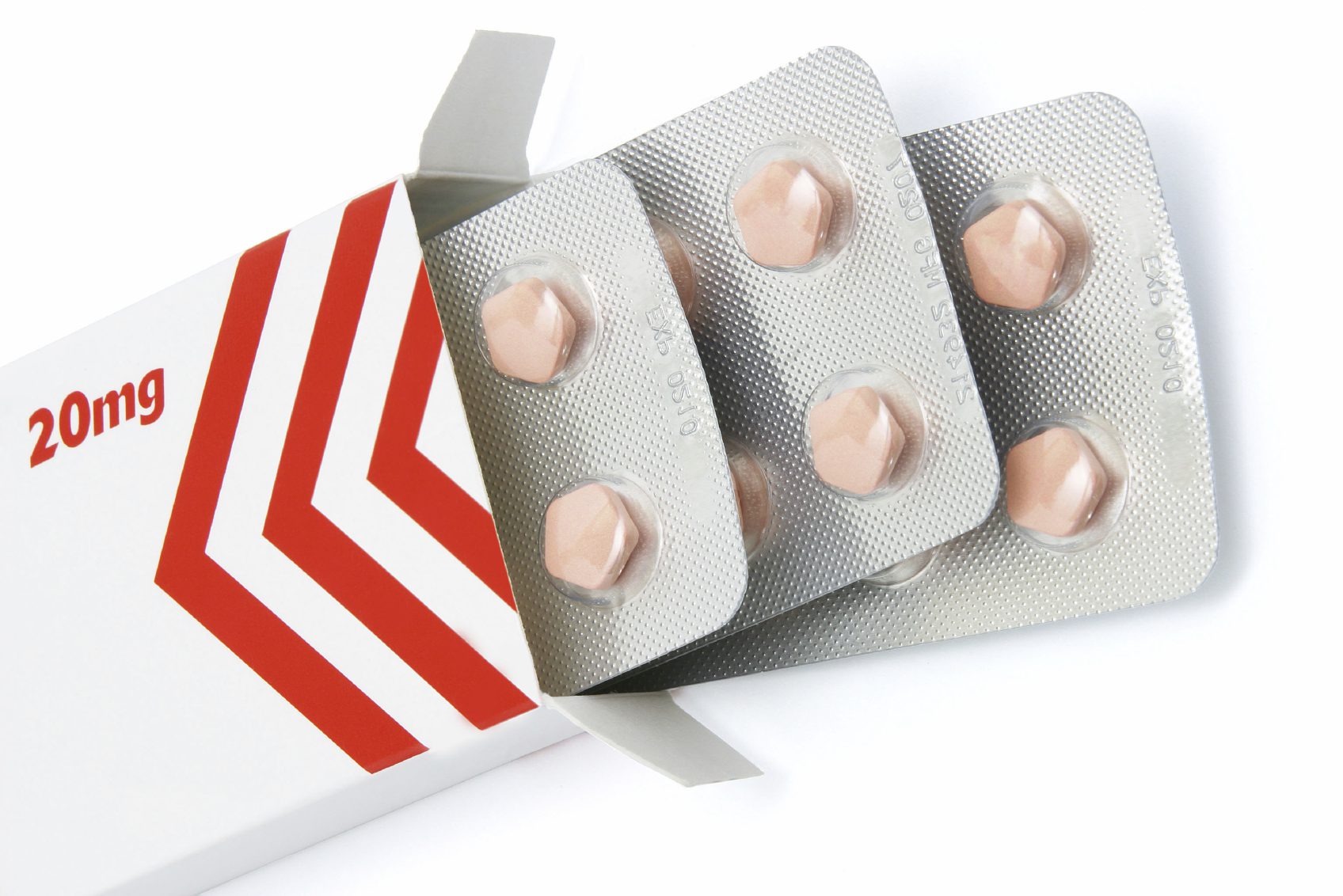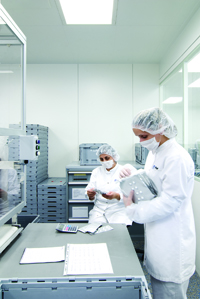After decades of domination by small-molecule drugs, one could say that the pharmaceutical industry is increasingly thinking large. More than 60% of drugs currently in clinical development are biologics for parenteral administration.
The small-to-large molecule shift is giving the pre-filled syringe market a shot in the arm, making it one of the fastest growing segments of the injectable drug delivery device market. According to the National Institutes of Health, 44 clinical studies are enrolling a total of 12,000 patients in order to test drugs using these delivery devices. That’s an increase from merely a handful of clinical trials utilizing pre-filled syringes in 2010.
Three of the top 10 selling drugs in the past year are administered via pre-filled syringe. The global market for these delivery devices is projected to reach $5 billion in 2019, up from $2 billion in 2012. This robust growth reflects the compelling benefits of pre-filled syringes for drug manufacturers, healthcare providers and patients compared to conventional vial and ampule packaging.
This Xtalks webinar will examine the growth of pre-filled syringes, the factors contributing to this growth, and the key role technological advances in syringe assembly and labeling are playing in this expanding area. In 2010, Fisher Clinical Services began working with a large pharmaceutical company to develop an automated solution for assembling and labeling these devices. Three years since initiating the service, the company has assembled and labeled more than five million syringes for a variety of customers. Campaigns generally range between 500 and 50,000 syringes, with the largest numbering 250,000 units.
In the years since the service started, expansion of the pre-filled syringe market has continued for several reasons: Patent expiries for biologics are creating a new and competitive market for biosimilars, a new class of drugs expected to increase the availability of affordable medicines. Developing a biosimilar in a prefilled syringe may give it an advantage compared to generic rivals and the innovator therapy. For the same competitive reason, some companies are looking to make the switch from a vial presentation to syringe. Market growth is also due to changing medical practices, including a rise in self-administration of drugs to contain healthcare costs and immunizations taking place outside traditional medical settings. A swelling population of elderly are living longer with chronic diseases, such as diabetes and rheumatoid arthritis, which require frequent parenteral dosing.
Finally, there is the substantial impact of technological innovations that have transformed the assembly and labeling of pre-filled syringes. With trials of biologicals climbing in volume, size and complexity, manual assembly and labeling of pre-filled syringes for studies — once standard practices — are no longer viable options for any but the smallest studies. Nor do they need to be.
Using the latest automated equipment, Fisher Clinical Services assembles and labels tens of thousands of pre-filled syringes of every size and shape with precision and speed. Afterward, new shipping options ensure that pre-filled syringes reach investigator sites across the globe in pristine condition.
As with all clinical trials, studies using pre-filled syringes require well-thought-out clinical supply plans and, increasingly, an innovative supply chain partner capable of offering flexibility alongside precision automation and global processes.
Automating Pre-Filled Syringe Assembly and Labeling
A pre-filled syringe is a single-use, disposable drug delivery system filled with a measured dose of drug or vaccine. Pre-filled syringes have been available for more than two decades. They consist of pre-filled syringe cartridges containing drug or vaccine designed to fit into specialized syringes. Pre-filled syringes are used in place of standard syringes, which healthcare practitioners must fill manually before administering a dose of drug or vaccine to a patient.
As biopharma companies turn to large-molecule biologicals, they are increasing their reliance on outsourcing partners for help in assembling and labeling pre-filled syringes for use in global clinical trials.
Many large biopharma companies have their own dedicated automated facilities for assembling and labeling pre-filled syringes for commercial products. Even so, they may lack sufficient capacity to meet both commercial requirements and the demands of large clinical trials.
Efforts to meet both needs can lead to time-consuming bottlenecks as commercial and clinical operations compete for finite internal resources.
To prevent such bottlenecks, sponsors are turning to clinical supply chain partners for assistance. For more than 25 years, Fisher Clinical Services has exclusively focused on serving the packaging and distribution requirements of clinical trials across the world. As clinical trials require increasingly complex supply chain support, the company’s purpose-built integrated facilities provide the global presence, information systems, and flexibility to allow unparalleled visibility and control of GMP activities from protocol design through to the investigator site.
As little as five years ago, help from a clinical supply chain partner in assembling and labeling pre-filled syringes for a clinical trial always meant a painstakingly time-consuming manual process. This limited the use of pre-filled syringes to relatively small trials or production runs. Thankfully, times have changed, and so have the available options.
To illustrate the difference between then and now, imagine a production suite containing 10 trained operators who spend a day manually assembling and labeling pre-filled syringes. At the end of the shift day, the yield would be about 400 syringes.
Today, using precision automated equipment in that same production suite, the yield at the end of the shift day is about 13,000 syringes. This tremendous productivity increase makes it practical and cost-effective to use pre-filled syringes instead of higher-priced vials and needles for studies involving thousands of subjects.
Clearly, significant advances have been made to support the growing number of clinical trials that are investigating drugs with these delivery devices. To explore more about this trend, join Fisher Clinical Services at the Xtalks Webinar “Prefilled Syringes in Clinical Trials – Growth & Innovation” on November 6, 2014.
Speaker

Pamela Osborne, Senior Clinical Supply Chain Manager, Fisher Clinical Services
With over 14 years of experience in supply chain management, Pamela Osborne is currently a Senior Clinical Supply Chain Manager with Fisher Clinical Services, where she has worked since 2010. Pam started her career as an Industrial Engineer supporting manufacturing, logistics and operations. During that time, she had the opportunity to study lean manufacturing and methodology for 6 years under a Toyota Lean Kaizen Master. Her next role was leading a global team developing and designing lean manufacturing and logistics operations for new products globally. She progressed to a role in Quality where she became a Certified Six Sigma Green Belt and then enjoyed 2 years as a supply chain commodity leader building the enterprise supply chain, driving continuous improvement among suppliers and customers, and owning the performance and supply chain worth $250M of spend annually.
Pamela received her Bachelor’s Degree in Industrial Engineering from New Mexico State University. She also holds a Master’s Degree in Business Management from Indiana Wesleyan University. She is a past speaker for the ISPE Investigational Product Community of Practice Annual Meeting on developing supply strategies around a clinical protocol and managing conflict in the clinical supply chain.
Who Should Attend?
Clinical teams, plus professionals in clinical supplies, logistics and outsourcing, including those working within:
- Clinical operations
- Clinical supplies & investigational supplies
- Investigator sites
- Clinical packaging & labeling
- Clinical quality assurance/quality control
- Regulatory affairs
- Clinical project management
- Clinical development
Xtalks Partner
Fisher Clinical Services
Fisher Clinical Services is the world’s leading provider of clinical supply chain services.
With a network of cGMP facilities strategically located across the globe to support the conduct of clinical trials, we offer worldwide support for all aspects of clinical supply management including comparator, co-medication and ancillary supply sourcing, packaging, labeling, distribution, storage, through to returns and destruction. With more than twenty years of experience exclusively focused on clinical trials, we can offer guidance and full logistics support across all types of clinical programs and projects.
Media Partner
You Must Login To Register for this Free Webinar
Already have an account? LOGIN HERE. If you don’t have an account you need to create a free account.
Create Account




